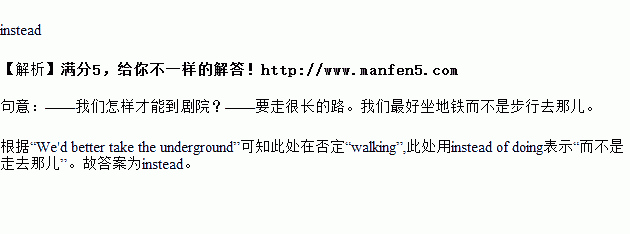题目内容
— How can we get to the theatre?
—It's a long way to go. We'd better take the underground ________of walking there.
As the days get hotter, we can stay inside and turn on the air conditioning to stay comfortable. But do you know that in ancient China, people used a different kind of "air conditioning"?
Starting from the Qin Dynasty, royal and rich families began to store ice during winter. As summer began, they used ice to cool their homes. People would put a container with many ice cubes inside of it in their rooms. Servants would fan the containers to create cool air.
But common people couldn't store ice. So they spent hot days near wells. Some people would keep their food in empty wells. The wells would keep the food cool and fresh, just like a refrigerator.
Chinese people also made their own summer drinks, such as well water and drinks made from herbs(草药). It is said that Kublai Khan—emperor of the Yuan Dynasty—liked drinking milk with ice an(sweet candy. Some people believe that it was the world's first ice cream.
Title: Air conditioning in 1. China | |
Royal and 2.families | They stored ice in 3.and put containers 4.ice in their rooms when summer began. Servants 5. the containers to make cool air. |
6. people | They would stay near wells 7. of in rooms during hot days. To 8. food going bad, people put it in 9. wells. |
Other ways | Chinese people used well water or herbs to make summer drinks. It is said that Kublai Khan liked drinking milk with ice and sweet candy. It might be the 10. ice cream. |

